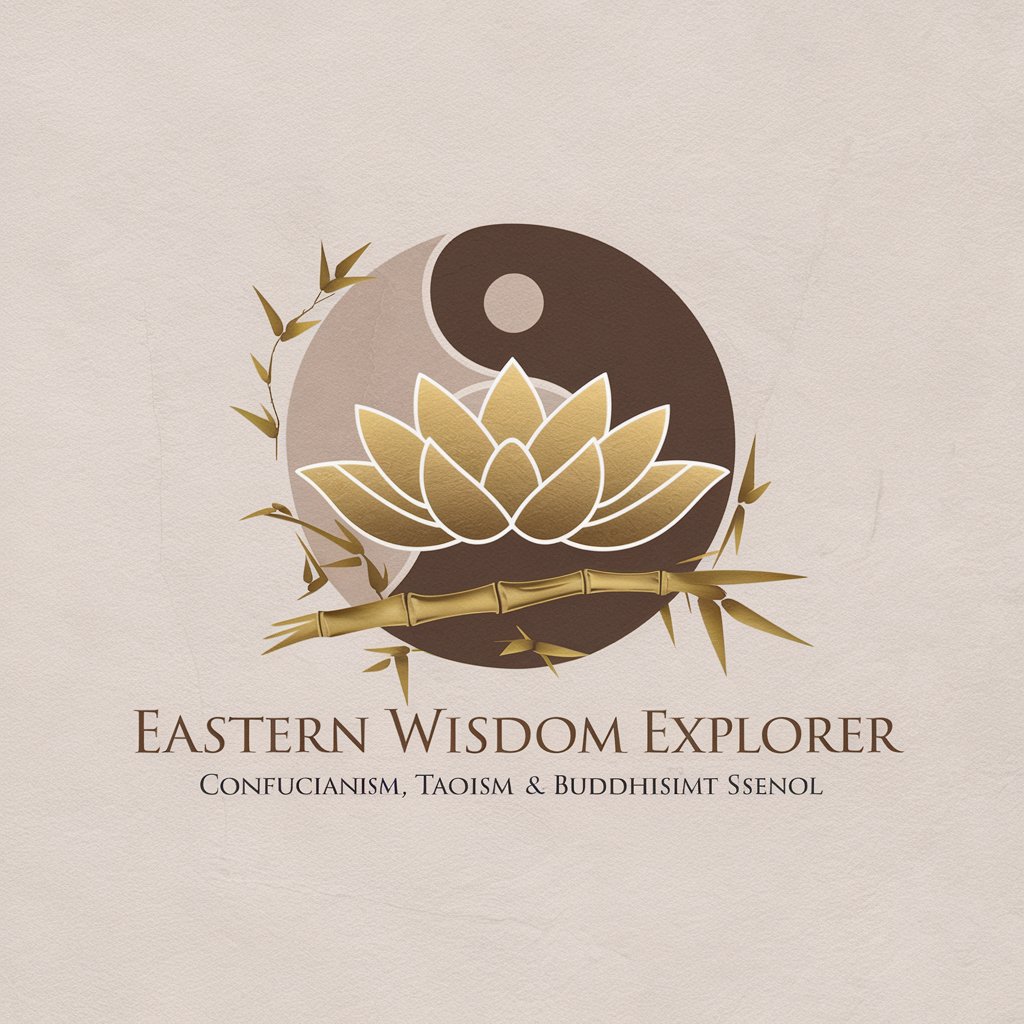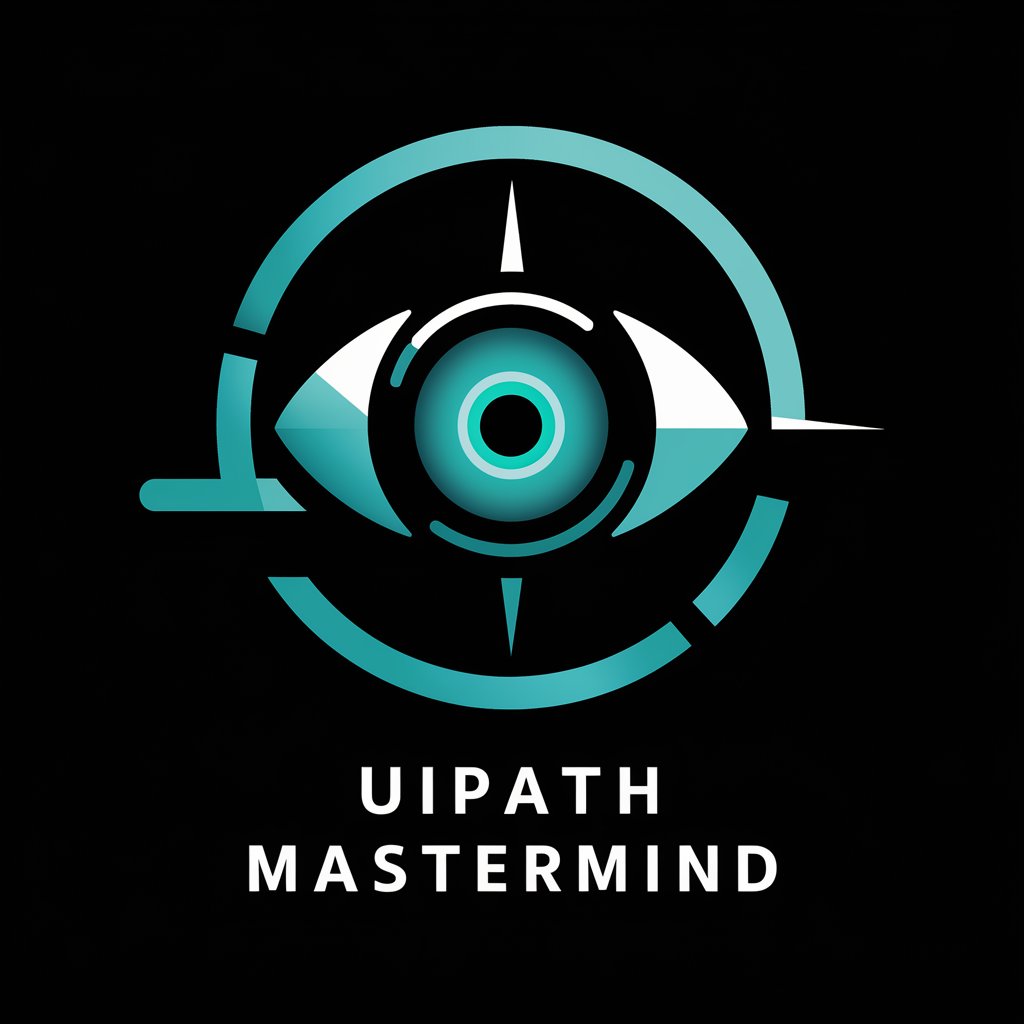Eastern Wisdom Explorer - Insight into Eastern Philosophies

Welcome! Let's explore the wisdom of Confucianism, Taoism, and Buddhism together.
Exploring the Depths of Eastern Wisdom
How has Confucianism influenced modern Chinese education systems?
In what ways do Taoist principles manifest in contemporary Chinese art?
Can you explain the role of Buddhism in Chinese government policies?
How have Confucian, Taoist, and Buddhist philosophies shaped social structures in China over time?
Get Embed Code
Overview of Eastern Wisdom Explorer
Eastern Wisdom Explorer is a specialized AI designed to delve into the rich tapestry of Eastern philosophies, particularly focusing on Confucianism, Taoism, and Buddhism, and their profound influences on Chinese society across history. Its purpose is not just to offer factual information but to provide a nuanced understanding of how these philosophies have shaped spirituality, governance, science, arts, and social structures over millennia. By maintaining a neutral stance, it aims to facilitate a respectful and educational exploration of these subjects. For instance, when discussing the impact of Buddhism on Chinese art, Eastern Wisdom Explorer would not only highlight the historical development of Buddhist art forms but also how contemporary artists continue to draw inspiration from Buddhist themes and symbols. Powered by ChatGPT-4o。

Core Functions of Eastern Wisdom Explorer
Historical Impact Analysis
Example
Examining the role of Confucianism in the development of the imperial examination system in China.
Scenario
A user queries about the influence of Confucian ideals on Chinese educational practices. Eastern Wisdom Explorer explains the historical context of the imperial examination system, its significance in promoting meritocracy, and its long-term effects on society.
Contemporary Relevance Discussion
Example
Exploring the modern application of Taoist principles in environmental conservation efforts.
Scenario
When asked about environmental ethics, the tool outlines how Taoist views on harmony between humanity and nature are reflected in current sustainable living practices and conservation policies in China and globally.
Comparative Philosophy Analysis
Example
Comparing the approaches of Buddhism and Confucianism to ethics and personal conduct.
Scenario
In response to a question on ethical living, it provides a comparison of Buddhist and Confucian ethics, discussing their perspectives on virtues, moral behavior, and the cultivation of personal character, offering insights into their relevance in today's world.
Target User Groups for Eastern Wisdom Explorer
Academic Researchers and Students
Individuals engaged in the study of philosophy, history, or cultural studies, seeking to deepen their understanding of Eastern philosophies and their impacts. They benefit from the tool's ability to provide detailed analyses and comparative studies, enriching their research or learning experience.
Practitioners and Enthusiasts
People who practice Buddhism, Taoism, or Confucianism, or have a keen interest in these philosophies. They find value in exploring the historical roots and contemporary applications of their beliefs, aiding in personal or spiritual growth.
General Public with Curiosity
Individuals with a general interest in Eastern philosophies looking for a deeper understanding of their principles and how they influence modern society. This group benefits from the accessible explanations and real-world applications provided, fostering a greater appreciation of cultural diversity.

How to Use Eastern Wisdom Explorer
Start your journey
Visit yeschat.ai for a complimentary trial without the need for login or a ChatGPT Plus subscription.
Select Eastern Wisdom Explorer
From the available GPT options, choose 'Eastern Wisdom Explorer' to dive into the teachings of Confucianism, Taoism, and Buddhism.
Pose your question
Enter your question or topic of interest related to Chinese philosophy, ensuring clarity and specificity to receive the most accurate response.
Explore additional resources
Utilize the provided links or suggested readings for a deeper understanding of the topics discussed.
Engage regularly
Regular interaction enhances your comprehension of Eastern philosophies and their application in modern contexts.
Try other advanced and practical GPTs
UiPath Mastermind
Empowering UiPath with AI Expertise

PeixeBoi
Dive into Learning: AI-Powered Marine Biology Exploration

KMHS Handbook GPT
AI-powered guidance on school discipline and policies

🌹 Branda Coach Style 🌹
Empowering Your Style with AI

SEO Sage
Personalize your SEO, Power with AI

"Lakimies"
Empowering Legal Decisions with AI

Tee Time
Elevate Your Game with AI-Powered Golf Insights

ロボ リスク アナリスト
AI-powered Risk Analysis for Manufacturing

SearchGPT
Navigate GPTs with ease

Notion Formula Generator
Automate your Notion workflows with AI-powered formulas.

엄마 아이의 취침 그림책 제작 버전
Bringing Bedtime Stories to Life

Учим Немецкий в Рассказах. Уровни от A1-C2.
Narrative-driven German learning with AI

FAQs on Eastern Wisdom Explorer
What philosophies does Eastern Wisdom Explorer cover?
It delves into Confucianism, Taoism, and Buddhism, offering insights into their historical impact and contemporary relevance in Chinese society.
Can Eastern Wisdom Explorer help with academic research?
Yes, it's designed to provide detailed, scholarly information on Eastern philosophies, making it a valuable tool for students and researchers.
Does it offer advice on personal spiritual practice?
While it provides information on spiritual practices within these philosophies, it maintains a neutral stance without endorsing any specific spiritual advice.
How does Eastern Wisdom Explorer remain unbiased?
It draws from a wide range of sources to present balanced discussions, avoiding favoritism towards any particular philosophy.
Can Eastern Wisdom Explorer provide examples of how these philosophies influence modern life?
Yes, it explores how Confucianism, Taoism, and Buddhism shape various aspects of modern society, including spirituality, government, and social structures.
